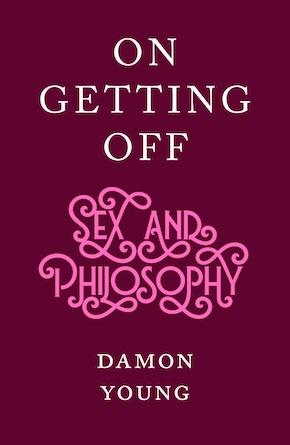The vulgar, not the Vulgate
by Damon Young
“A spicy examination of the frequently ambivalent, ambiguous and even incongruous ‘tangle’ of eros, libido and romance that we call sex.” The Saturday Paper
A brief note on the word, ‘sex’. I find myself avoiding it often.
It is an ugly word. Not because it is boorish, but because it is too refined. ‘Sex’ is clinical: sterile, precise, institutional. It comes from the Norman French, originally Latin – what philologists Reneé and Henry Kahane called ‘the status symbol of the rich, the powerful, the refined, and the snobbish’. It is the word of aristocratic victors, looking down upon Anglo-Saxon oiks.
Even today, ‘sex’ belongs in the official lexicon of government, business and academia. Adults use it in treatises and memoranda, often without sniggers or twitches. It is acceptable – that is to say, safe.
It is also very modern. For most of its history, ‘sex’ meant the division of the species into male and female. When Henry James, in Portrait of a Lady, wrote that Isabel Archer had the ‘common genius of her sex’, he was not referring to her boudoir gymnastics. He meant she was manipulative without guilt. (More proof that novelists can invent humans without always understanding humanity.) ‘Sex’ also meant genitals, a connotation that lasted at least three centuries from the seventeenth to the twentieth. A generation after Henry James, we finally see the newer sense in print: something you did or had. In his 1900 Love and Mr Lewisham, H.G. Wells quoted an orator saying ‘we marry in fear and trembling, sex for a home is the woman’s traffic’. The patriarchal exchange is old, alas – but the phrasing is new. No doubt the slang was spoken before it was written, but the point stands: ‘sex’ has had a long rapport with classification and a short one with screwing.
(‘Screw’: first in print during the early eighteenth century. Suffolk County Court records, 1719: ‘Mr. Boyd screwed Mr. Longs Maid of Charlestown.’)
‘to iape, to sard, to fucke, to swive, to occupy’. In 1598 the English had some marvellous words for sex – but only ‘fuck’ is still with us.”
A far better word for intercourse itself is ‘fuck’. Perhaps an ancient Germanic borrowing with older Indo-European origins, we find it in a sixteenth century Scottish courtier’s poem. In William Dunbar’s 1513 ‘A Man of Valour to his Fair Lady’, a coiffed but clumsy youth shows he wants to sleep with his girlfriend: ‘be his feirris he wald haue fukkit’, or ‘by his behaviour, he would have fucked’. The word turns up again in an Italian-English dictionary, under the definition of fottere: ‘to iape, to sard, to fucke, to swive, to occupy’. In 1598 the English had some marvellous words for sex – but only ‘fuck’ is still with us.
No doubt this is partly the word’s force: the breathy ‘f’ then percussive ‘ck’. It is fun to say, and to pair with other words. (From my own Australia: ‘fuckwit’.)
Put simply, as descriptions for copulation, I prefer the slang to the formal terminology. Of course, sex is more than fucking – this is the very basis of my philosophy. But insofar as I write about intercourse, I often choose the vulgar over the Vulgate.
This is partly an aesthetic decision. Most superficially, ‘sex’ is a clumsy word. It lacks the power of ‘fuck’, or even the levity of ‘bonk’ or ‘roger’. (Humour is vital in the bedroom.) Even ‘doing it’ is better, with its suggestion of anonymous, private labours.
‘Sex’ also has a medical atmosphere to it; a mood of rubber gloves and forceps. (No judgement, if this is your fetish.) To say ‘sex’ rather than ‘fuck’ is often to prefer the physician’s perspective to the lover’s. This view is not false, but it is partial. It leaves out the first-person intimacy of screwing; the immediate feeling of self and other that arises here, amongst things – rather than from the Archimedean point noted by Nussbaum. This might seem aesthetic too, but it actually concerns a vision of reality I quietly encourage.
In Why the World Does Not Exist, philosopher Markus Gabriel writes that ‘we prematurely create world pictures and in the process forget ourselves’. I write ‘fuck’ instead of ‘sex’ because I am trying not to forget myself.
from On Getting Off: Sex and Philosophy (Scribe, £12.99)
 Damon Young is a prize-winning philosopher and writer. He is the author or editor of thirteen books, including The Art of Reading, How to Think About Exercise, Philosophy in the Garden and Distraction. His works have been translated into eleven languages, and he has also written poetry, short fiction, and children’s fiction. He is an Associate in Philosophy at the University of Melbourne. On Getting Off is published by Scribe in hardback and eBook.
Damon Young is a prize-winning philosopher and writer. He is the author or editor of thirteen books, including The Art of Reading, How to Think About Exercise, Philosophy in the Garden and Distraction. His works have been translated into eleven languages, and he has also written poetry, short fiction, and children’s fiction. He is an Associate in Philosophy at the University of Melbourne. On Getting Off is published by Scribe in hardback and eBook.
Read more
damonyoung.com.au
damonayoung
@damonayoung
@ScribeUKbooks
Author portrait © Raymond Taudin Chabot

